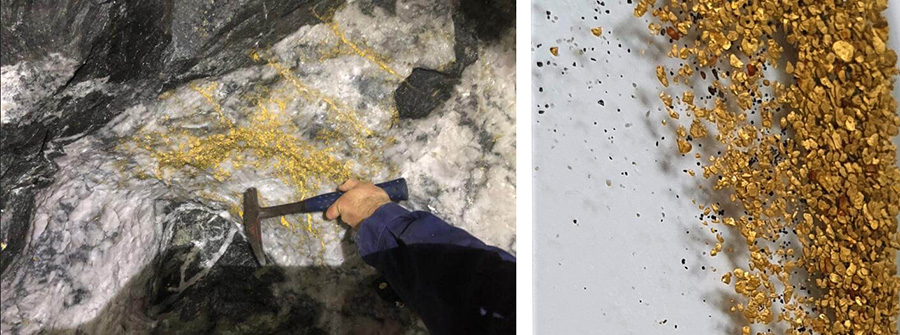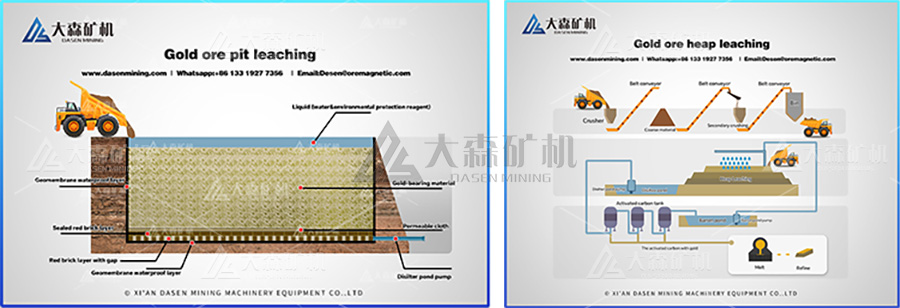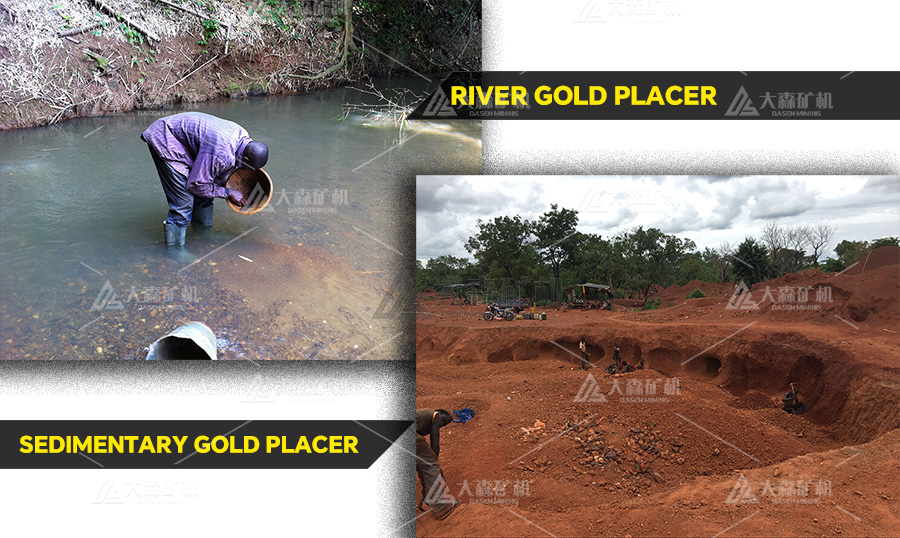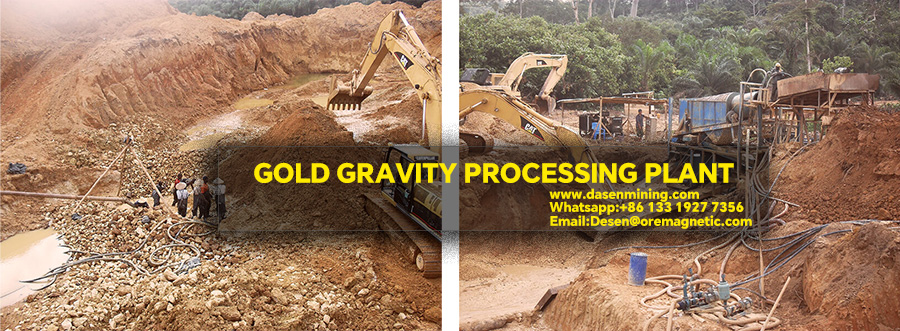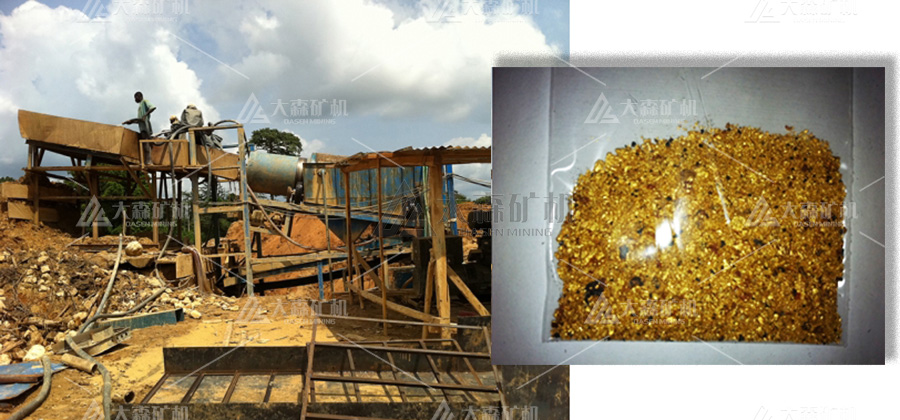How Can You Prospect for Placer Gold Mines Effectively?
Our Gold Ore Plant Solutions:
- Gold Gravity Processing Plant: This plant utilizes gravity to separate gold from other minerals.
- Gold Flotation Processing Plant: This plant uses froth flotation to concentrate gold.
- Gold CIP/CIL Processing Plant: This plant employs carbon in pulp or carbon in leach processes to extract gold.
- Gold Heap Leaching Plant: This plant uses a heap of ore to extract gold with a cyanide solution.
- Gold Pit Leaching Plant: This plant extracts gold from a pit using a cyanide solution.
How to Find Placer Gold Mines:
There are several methods to prospect for placer gold, and the five most common ones are:
- Natural Heavy Sand Method: This method leverages the high density of placer gold particles to separate them using elutriation trays. Samples are collected from surface or shallow loose debris deposits and processed on-site.
- Engineered Heavy Sand Method: This method employs sand drills or exploratory wells to penetrate sedimentary layers and systematically sample for gold content.
- Old Mining Survey: This method involves examining old placer gold mining sites to identify potential areas for further prospecting.
- Geological and Geomorphological Analysis: This method analyzes geological and geomorphological factors to predict favorable mineralization zones.
Key Considerations for Sampling Heavy Sand:
- Sampling Points: Choose representative sampling points along the river, typically spaced 200-300 meters apart.
- Sampling Location: Select areas with slower river flow, near obstacles, or at tributary junctions.
- Sampling Level: Ensure the sample contains mud, sand, and gravel.
- Sampling Depth: Avoid excessive excavation in old mining sites.
- Avoid Water Sampling: Do not collect samples directly from water.
By understanding these methods and factors, you can increase your chances of successfully finding gold mines and utilizing appropriate processing plants for efficient extraction.
If you have any questions about the above content or gold gravity ore processing and want to know more info, please contact the online service or submit your message.
Whatsapp:+86 133 1927 7356
Email:[email protected]

